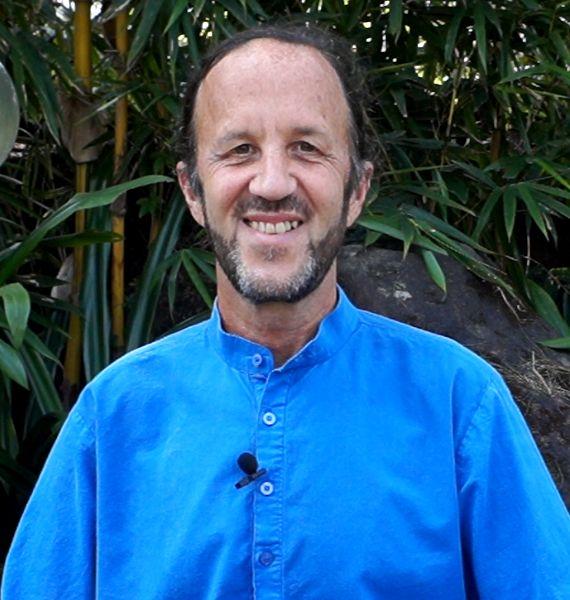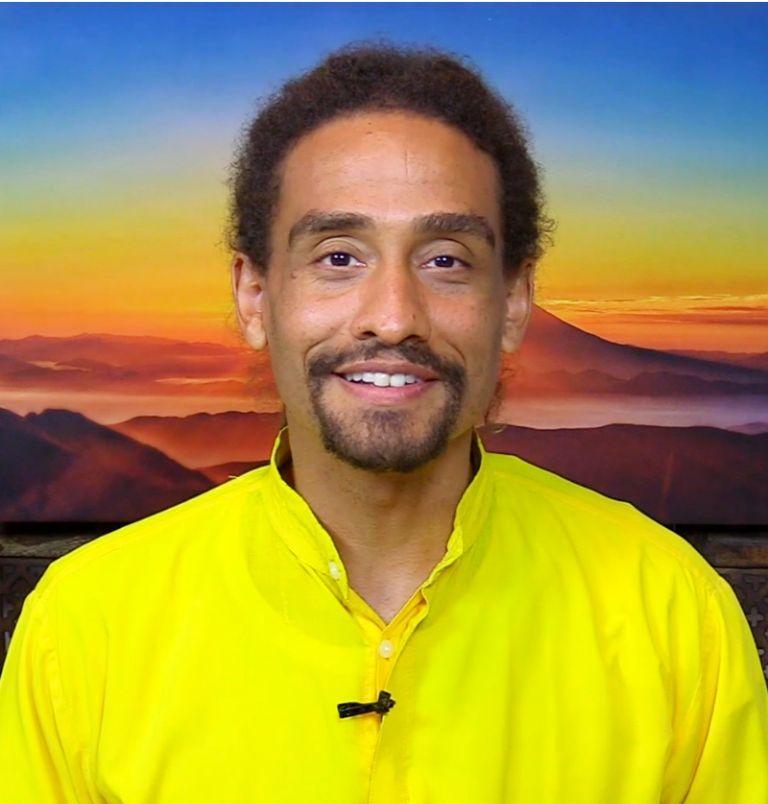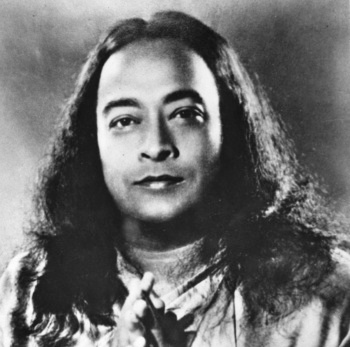Karma, death, and reincarnation are fascinating subjects for many of us. The more we understand them, the richer and more meaningful life becomes because we gain the reassurance that all of life is designed to help us move toward our own highest fulfillment.
Join Nayaswami Devarshi and Brahmachari Jemal in this course as they share how we can make the most of every day of the life we have been given by understanding the deeper purpose of existence for every soul.
Every action, every thought, reaps its own corresponding rewards. This is the law of karma. If we accept the principle of cause and effect in nature, and of action and reaction in physics, how can we not believe that this natural law extends also to human beings? Do not humans, too, belong to the natural order? This course is based on the teachings of Paramhansa Yogananda, a master of yoga and one who shared these teachings from his inner knowledge of truth.
Enjoy 23 videos sharing concepts or instruction including guided techniques and tips to practice daily in addition to bonus content. You will also receive PDF hand-outs on the subject and an opportunity to connect with the instructors at anytime.
Course Highlights:
- Learn Paramhansa Yogananda's techniques on the operation and purpose of Karma and Reincarnation
- What is Karma and what are the different types of karma
- What is Reincarnation? What happens at death and after death? Hoe can we deal with the loss of a loved one?
- Stories on Karma and Reincarnation told by Yogananda
- 10 Tips to overcome our karma quickly without creating new karma
COURSE OUTLINE:
PART 1: KARMA
PART 2: PRACTICAL WAYS TO OVERCOME KARMA
PART 3: REINCARNATION
PART 4: DEATH, DYING AND REINCARNATION
PART 5: CONCLUSION AND NEXT STEPS
BONUS CONTENT
Register Now:
Register for this course, "Karma and Reincarnation,"
= Rs. 1600
= Rs. 1200
[Thank you! The proceeds will help fund our outreach efforts].
Take this course at your own pace starting immediately in your private account at Ananda India Online.
Already registered? Login!
Meet the Instructors:

Nayaswami Devarshi
Nayaswami Devarshi joined Swami Kriyananda in 1977 and has been serving Ananda Sangha full time since then. Service to his guru has taken him all over the world teaching meditation and Kriya Yoga. He currently lives in India and serves as the director of Ananda's Global Kriya Yoga Sangha and the Ananda India Monastery.

Brahmachari Jemal
Brahmachari Jemal has been a part of Ananda India since 2005, leading the Ananda monks here in India for most of that time. He has given lectures and classes throughout India. He is currently in charge of Ananda’s Kriya Home Study program, where he works with students throughout India and abroad, assisting them to prepare for receiving Kriya yoga.
Frequently Asked Questions:
1) I seem to have bad work karma. I can't seem to keep a job. How can I ensure that my new employer will keep me at this job? Will my bad employment history get in the way of my new job?
Paramhansa Yogananda lived during the challenging decade of the Great Depression (1930’s) and advised people to never give up in the search for right livelihood. He thundered, “If I were out of a job I would pound the pavement until I found one!” He also commented that many people who have issues with job or business failure patterns too often given up right before the karma shifts toward success! Like pulling a nail out of a board, you never know when it’s going to just pop out! You just have to be persistent, calm and alert. It is also useful to have positive expectations; to have faith in yourself and in the goodness behind both success and failure. Life is a school. Do your best to past your exams.
Put aside your worries and fears and DO YOUR BEST with a pleasant, cheerful and willing attitude. Don’t be ruled by the past because how you act NOW can dissolve the karmic bonds of causation that produced past failures. It is important to meditate daily, pray for openness to learn the lessons that life gives to you, to bless your work and co-workers (and customers, if any), and to be grateful for what you DO have and for as long as you have gainful employment. Welcome any opportunity and, indeed, seek every opportunity to improve your skills and education in your field. Seek excellence in all that you do and never be satisfied with what you have accomplished but seek to do more and better always. Develop the habit and attitude saying to others at work: “How can I help?” Praise and express gratitude to others (sincerely, not obsequiously, however). Encourage others in their work.
By these actions and attitudes, you can transform even the dullest and most negative work environment into a heaven of joyful cooperation, making yourself effectively indispensable. This course offers helpful suggestions on how to work with ourselves in the above mentioned ways.
2) Does one always have to suffer because of our past Karma? Is there a more positive solution?
Karma is not meant as punishment. Instead, it is part of the learning process that the soul goes through in its journey to freedom. We have to learn, deeply within ourselves, that we never want to cause pain to another in any way. Intellectual understanding does not change us in the same way that personal experience does. So, karma will come to us. But what changes is how we experience it. The stronger we are spiritually, the less thrown we are by the karma.
Karma simply means “action.” Just as in the physical world we know of Newton’s law that every action brings an opposite and equal reaction, in the same way, the energy we put out into the world comes back to us. The action itself is not as important as the intention behind the action. The same action if put out with hatred will reap one kind of karma; if put out to be helpful, it brings a different karma. For example, a doctor sometimes has to inflict pain, but he does it only to help the other person.
Yogananda said that the best way to work out our karma is to meet it calmly and pleasantly. It is our resistance to what comes to us that causes us, in most cases, the worst suffering: wishing things were other than they ARE. Yogananda's teachings are marvelously helpful because he brings great clarity on many different philosophical points but mostly, they helps us see that the subject of karma is not something negative at all. It is actually the flow of divine blessing in our lives.
3) What is the karma behind freak deaths or accidents?
Freak deaths or accidents are “freak” because they seem random. But so also do many other things, if you view them as such: miscarriages, early death, unfair incarceration and injustices in general. The mature approach to the paradoxes of life is to have a practical response. More important than understanding the “why” is the “what:” What do I do about this? What is my response to this tragedy?
A tragedy might inspire a listless or wayward person to sit up and seek meaning in his life. Another may despair, it is true, but then that is the response, an impractical one at best, that such a person chooses. A practical response is one that is calm; even-minded; hopeful for the best; sad, perhaps, yes, but accepting when there’s nothing presently that can be done. Faith that for others, at least, a ray of light may appear. When the great Indian saint, Ananda Moyi Ma was asked about the world and its troubles, she said, impersonally, “Don’t you think He that has created and sustains the universe knows how to run it?”
We didn’t create ourselves; the laws that govern life; nor yet the world itself. Our job is to tune into the deeper purpose of life behind which the greatest saints of east and west attest is the manifestation of love; of joy; of wisdom; and, ultimately, re-union with the divine.
4) Is there any link between the way one looks and one’s karma? Why are some people exceptionally fat or thin, pretty or ugly?
Physical and psychological characteristics are influenced by karma. All parts of our being- genetic, cultural and social are influenced by karma. Every human trait and tendency is self-acquired either in this life or in former lives because of karma. It is the result of individual choice. A way to work with a karmic tendencies is to realize it is a lesson for us. It may be to learn to develop will power, perseverance or discrimination and then we will change any tendency. If weight is the concern, may be it is will power with diet that is the lesson. You can re-shape every karma! If is an unpleasant disposition is the concern, may be being resourceful to find ways to inner happiness is the lesson. There is always an opposite response to all circumstances.
An affirmation is: “As I learn the lessons that life teaches me, I grow toward ever-greater joy and freedom.” While you are saying the affirmation, visualize Divine Love Itself as the Nearest of the Near and Dearest of the Dear. Let that visualization fill you with God’s love and light, purifying and uplifting all your tendencies.
Also, discriminate as to what is really important to focus on. Too much concern with physical appearances may not be the best use of our time and focus. That choice of what to change is only yours to make. Follow your inner guidance and ask God what is pleasing to Him first. In the language of your heart listen for His directions. And remember how much He loves you!

"Karma is best worked out by meeting life’s tests cheerfully and courageously. Don’t try to avoid life’s tests but rise above them by dwelling in God’s joy within. " Paramhansa Yogananda

